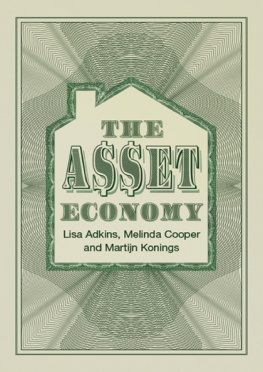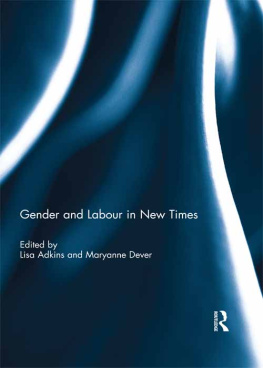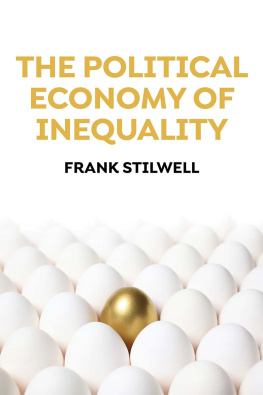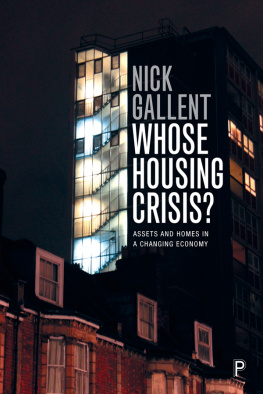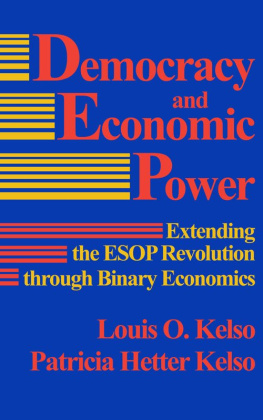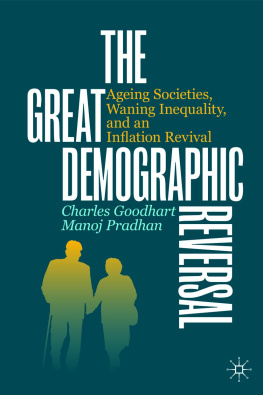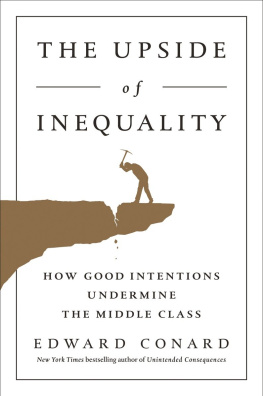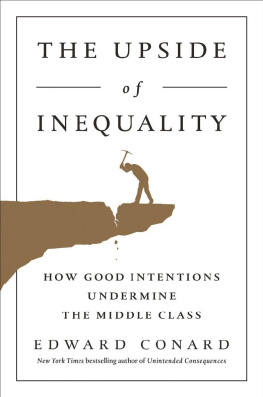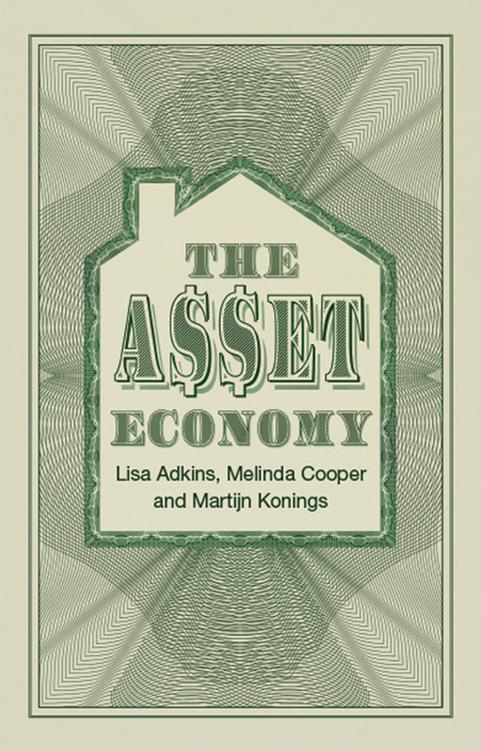Copyright page
Copyright Lisa Adkins, Melinda Cooper and Martijn Konings 2020
The right of Lisa Adkins, Melinda Cooper and Martijn Konings to be identified as Authors of this Work has been asserted in accordance with the UK Copyright, Designs and Patents Act 1988.
First published in 2020 by Polity Press
Polity Press
65 Bridge Street
Cambridge CB2 1UR, UK
Polity Press
101 Station Landing
Suite 300
Medford, MA 02155, USA
All rights reserved. Except for the quotation of short passages for the purpose of criticism and review, no part of this publication may be reproduced, stored in a retrieval system or transmitted, in any form or by any means, electronic, mechanical, photocopying, recording or otherwise, without the prior permission of the publisher.
ISBN-13: 978-1-5095-4345-8
ISBN-13: 978-1-5095-4346-5 (pb)
A catalogue record for this book is available from the British Library.
Library of Congress Cataloging-in-Publication Data
Names: Adkins, Lisa, 1966- author. | Konings, Martijn, 1975- author. | Cooper, Melinda, author.
Title: The asset economy : property ownership and the new logic of inequality / Lisa Adkins, Martijn Konings and Melinda Cooper.
Description: Medford : Polity Press, 2020. | Includes bibliographical references and index. | Summary: How assets dictate the new class system-- Provided by publisher.
Identifiers: LCCN 2020013339 (print) | LCCN 2020013340 (ebook) | ISBN 9781509543458 (hardback) | ISBN 9781509543465 (paperback) | ISBN 9781509543472 (epub) | ISBN 9781509544226 (adobe pdf)
Subjects: LCSH: Home ownership--Social aspects. | Generation Y--Social conditions. | Social stratification. | Finance--Social aspects. | Time--Social aspects.
Classification: LCC HD7287.8 .A35 2020 (print) | LCC HD7287.8 (ebook) | DDC 306.3--dc23
LC record available at https://lccn.loc.gov/2020013339
LC ebook record available at https://lccn.loc.gov/2020013340
Typeset in 11 on 13 pt Sabon
by Fakenham Prepress Solutions, Fakenham, Norfolk NR21 8NL
Printed and bound in Great Britain by CPI Group (UK) Ltd, Croydon
The publisher has used its best endeavours to ensure that the URLs for external websites referred to in this book are correct and active at the time of going to press. However, the publisher has no responsibility for the websites and can make no guarantee that a site will remain live or that the content is or will remain appropriate.
Every effort has been made to trace all copyright holders, but if any have been overlooked the publisher will be pleased to include any necessary credits in any subsequent reprint or edition.
For further information on Polity, visit our website: politybooks.com
Preface
The collaboration that led to the writing of this book emerged out of the convergence of ideas from our individual work. Each of our recent books (Adkins The Time of Money, Coopers Family Values and Konings Capital and Time) emphasized the growing role that speculative, asset-centred economic logics play in contemporary society. In this book we aim to build on that work to develop a new way of thinking about class and inequality.
We are very grateful for the generous institutional support that this project has received from the Faculty of Arts and Social Sciences at the University of Sydney, in particular its FutureFix programme Asset Ownership and the New Inequality.
In what follows, we make frequent reference to the 20078 financial crisis. Since that event, the inequalities associated with asset-based wealth have become more entrenched. As this book goes to press, the world is experiencing a very different kind of emergency the Covid-19 pandemic. In numerous countries, death rates are soaring, governments have put in place stay-at-home and social distancing mandates, and millions have lost their jobs as businesses are shutting down. The crisis has also done much to draw attention to existing levels of inequality. While the wealthy are able to take refuge in holiday homes, many workers living paycheck to paycheck cannot afford to socially isolate. Somewhere in between is a middle class that, mostly able to ride out the storm by staying inside, may be counting its blessings but is at the same time increasingly aware of how precarious its security financial and otherwise really is.
Central banks have stepped up their asset purchase programmes, pushing the scale and scope of quantitative easing to new levels. The $2 trillion relief package which Trump approved at the end of March 2020, even as he was still playing down the public health aspect of the pandemic, works largely according to the logic of trickle-down economics, offering financial help to embattled firms in the hope that this will induce them to maintain employment. Other countries, including the UK and Canada, have guaranteed wages directly. Such moves have fuelled hopes for a more enduring revival of Keynesianism or even for a radical programme of progressive economic policy. But even though crises can widen the horizon of political possibility, we should not forget how in the aftermath of the 20078 crisis, the hoped-for return to Keynesianism was quickly transformed into virulent austerity politics.
The political stakes will be even higher this time. If the post-Covid-19 era sees another wave of asset inflation, and if home ownership remains the only real but less and less realistic way for ordinary people to participate in that logic, the next decade will see a continuation of the social and political polarization that has been such a defining feature of the past decade.

